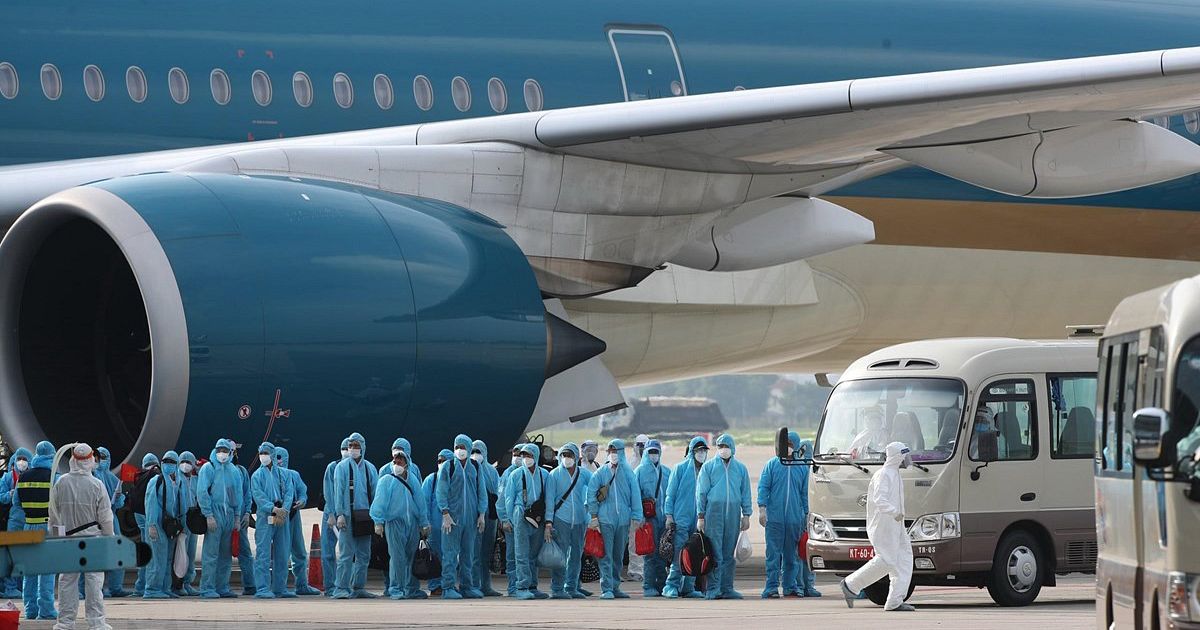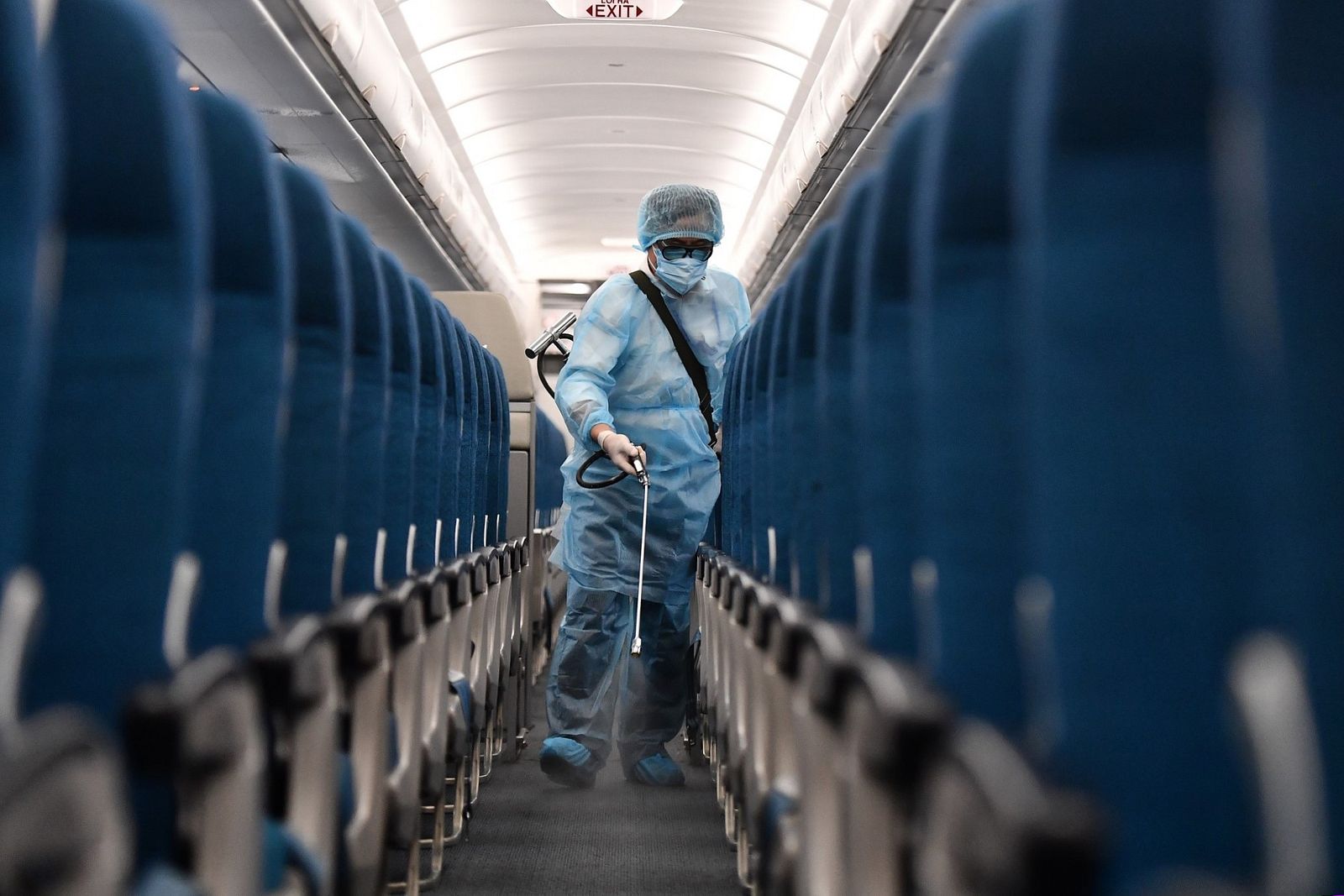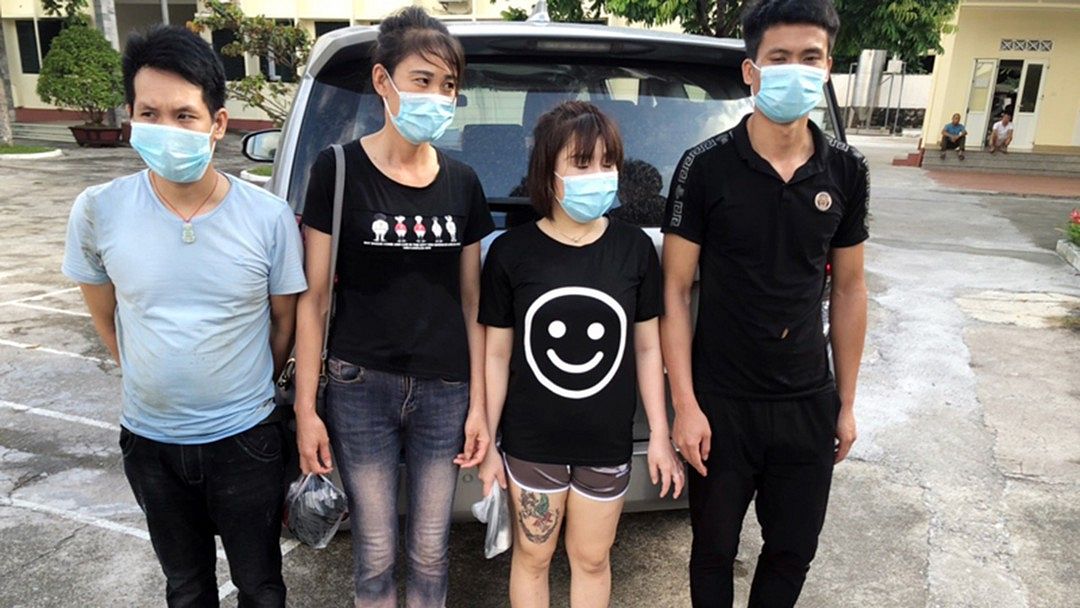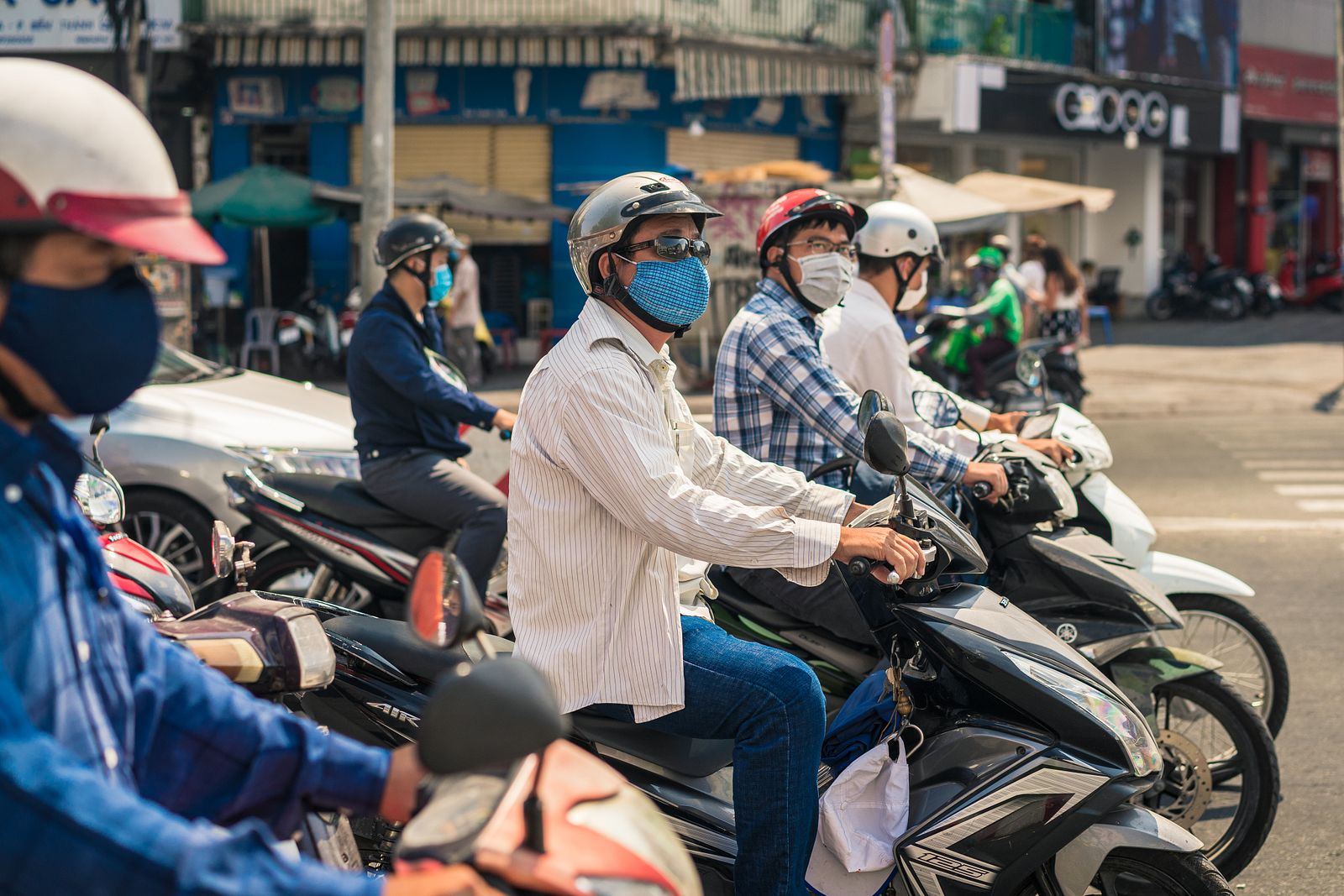Ahead of the Tết holiday next month, Vietnam has decided to tighten regulations regarding foreign arrivals and their quarantine period.
In a meeting of the National Steering Committee for COVID-19 Prevention And Control on January 15, Deputy Prime Minister Vũ Đức Đam presented a number of updates regarding Vietnam’s coronavirus strategy from now until Tết.
The committee announced the completion of a streamlined information system to manage the medical status of upcoming arrivals from pandemic-stricken countries. Under the new system, overseas citizens will complete a health declaration the moment they sign up for repatriation flights and provide an address of their stay after finishing quarantine.
The process is aimed at minimizing outside contacts with incoming citizens and reducing delays at airports in cases where passengers forget to make a health declaration.
To curtail infection risks during Tết, Vietnam has also decided to cut down the number of repatriation flights in general and halt flights from countries that recorded cases of the new highly transmissible strain of SARS-Cov-2. Plans to resume commercial flights have also been put on ice for now.
The committee added that those arriving from these regions will have to undergo quarantine periods longer than two weeks, the duration of which will be determined on a case-by-case basis. Regarding quarantine, the new policy stipulates that all cases will have to go through 14 days of compulsory centralized isolation; the only exceptions are diplomatic visits approved by the Ministry of Foreign Affairs.
Last September, Vietnam relaxed quarantine regulations so foreign experts who visit the country for less than 14 days wouldn’t have to spend two weeks in mandatory quarantine. Previously, flight crews who tested negative for the virus twice were allowed to go through quarantine at home to allow for more flexibility in human resource management at Vietnam Airlines, the operator of national repatriation flights.
The lenient policy, however, resulted in Vietnam's brief third wave of COVID-19 infections in Saigon after a flight attendant violated guidelines and met a number of people while quarantining.
At the conference, Deputy PM Đàm also shared that the committee agreed to waive fees for citizens returning via land border crossings who go through compulsory quarantine at military-operated facilities.
As of January 21, Vietnam has recorded 1,544 cases of COVID-19 in total, only 100 of which are still recovering. The majority of current patients were imported from overseas.
[Photo via Vietnam+]














